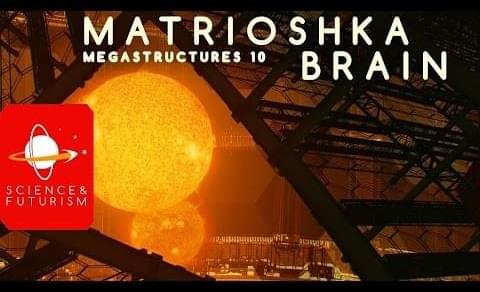Dec 7, 2022
NGA’s Stardust will modernize Earth models for GPS, mapping
Posted by Genevieve Klien in category: mapping
NGA is looking to both upgrade its software-based terrestrial data models and transition them to a cloud environment.
NGA is looking to both upgrade its software-based terrestrial data models and transition them to a cloud environment.
Establishing a moon base will be critical for the U.S. in the new space race and building safe and cost-effective landing pads for spacecraft to touch down there will be key.
These pads will have to stop lunar dust and particles from sandblasting everything around them at more than 10,000 miles per hour as a rocket takes off or lands since there is no air to slow the rocket plume down.
However, how to build these landing pads is not so clear, as hauling materials and heavy equipment more than 230,000 miles into space quickly becomes cost prohibitive.
A recent study shows that consuming high levels of sodium is associated with cognitive decline. On the flip side, the findings suggest that diets high in potassium are associated with higher levels of cognitive function.
Everyone knows someone who has had cancer. In 2020, around 19 million new cases—and around 10 million deaths—were registered worldwide. Treatments are improving all the time, but can damage healthy cells or have severe side effects that are hard on patients. In the search for new, more targeted cancer drugs, traditional medicine offers many possible candidates.
A team of Polish scientists led by Magdalena Winkiel at Adam Mickiewicz University, publishing today in Frontiers in Pharmacology, has reviewed the bioactive compounds called glycoalkaloids, found in vegetables like potatoes and tomatoes, to demonstrate their potential to treat cancer.
“Scientists around the world are still searching for the drugs which will be lethal to cancer cells but at the same time safe for healthy cells,” said Winkiel.
The system, with Level 4 autonomy, is in use at Stuttgart Airport for Mercedes cars and marks the start of a rollout of hundreds of systems in Germany.
The driverless parking system allows users to drop their Mercedes S-Class or EQS electric car at a drop off point after notifying an app. The system then checks that the route to a specific parking spot is clear and drives the vehicle autonomously to the correct location, wherever that might be in the parking garage.
Applying neural scaling laws to machine learning models, which means increasing the number of computations, the size of the model, and the number of training data points, can reduce errors and improve model performance. Since we have a lot of computing power available and collecting more data is easier than ever before, we should be able to reduce the test error to a very small value, right?
Here is a catch, this methodology is far from ideal. Even though we have enough computational power, the benefits of scaling are fairly weak and unsustainable due to the huge additional computational costs. For example, dropping the error from 3.4% to 2.8% might require an order of magnitude of more data, computation, or energy. So what can be a solution?

In Episode 10 we explore the Matrioshka Brain, a nested Layer type of Dyson Sphere designed to turn stars in to giant computers, and conclude our look at Dyson Spheres and other types of Stellar Engines.
Support the Channel on Patreon:
https://www.patreon.com/IsaacArthur.
Human beings can sometimes experience dissociative states, moments in which they feel disconnected from their body and the world around them. While these states have been linked to many psychiatric conditions, they can also be elicited by the intake of some legal and illegal drugs.
One of the most renowned dissociation-inducing drugs is ketamine, an anesthetic commonly used to sedate patients or reduce pain resulting from medical procedures. In recent years, ketamine has also been found to be a potentially valuable treatment for some cases of depression.
While several studies have investigated the therapeutic effects of this strong anesthetic, so far very little is known about the cellular and neuronal mechanisms behind the dissociative states it produces. A paper by a team of researchers at University of Pennsylvania, recently published in Nature Neuroscience, might shed some light on these so far elusive processes.
We thought the Big Bang started it all. Then we realized that something else came before, and it erased everything that existed prior.
Dark matter makes up about 27% of the matter and energy budget in the universe, but scientists do not know much about it. They do know that it is cold, meaning that the particles that make up dark matter are slow-moving. It is also difficult to detect dark matter directly because it does not interact with light. However, scientists at the U.S. Department of Energy’s Fermi National Accelerator Laboratory (Fermilab) have discovered a way to use quantum computers to look for dark matter.
Aaron Chou, a senior scientist at Fermilab, works on detecting dark matter through quantum science. As part of DOE’s Office of High Energy Physics QuantISED program, he has developed a way to use qubits, the main component of quantum computing.
Performing computation using quantum-mechanical phenomena such as superposition and entanglement.
